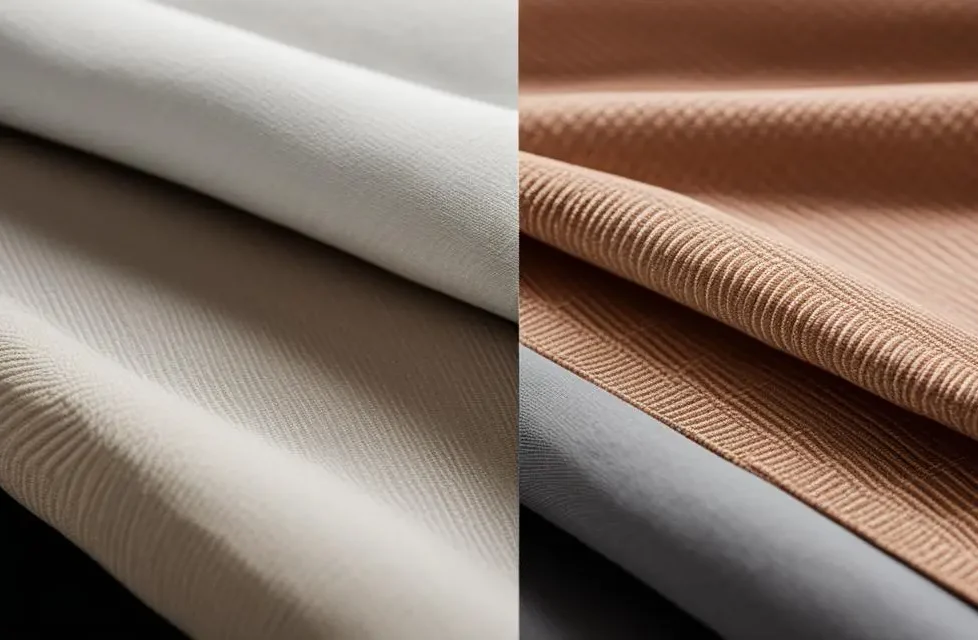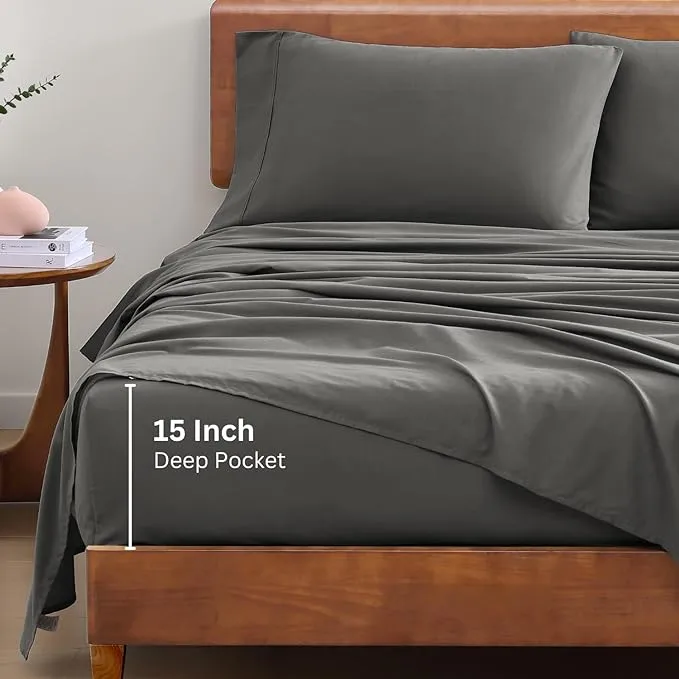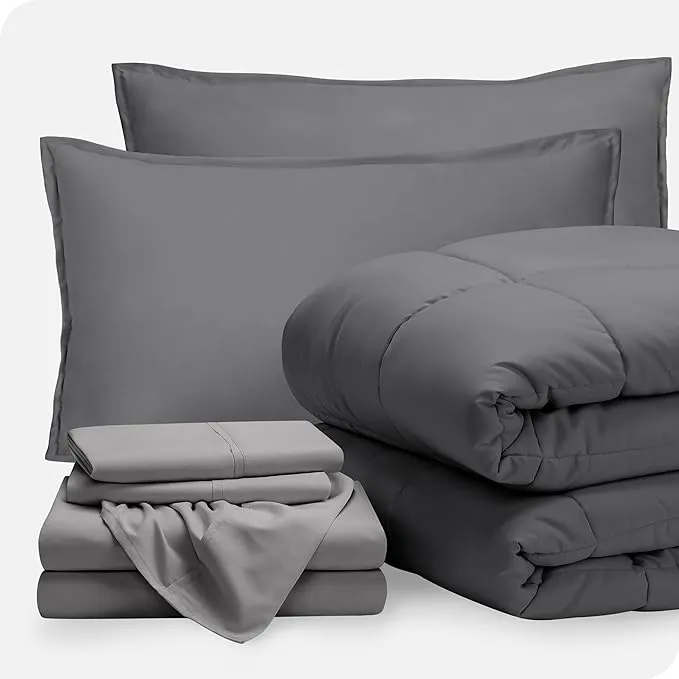Pros and Cons of Microfiber vs Cotton Bedding

Your ability to have a decent night’s sleep is greatly affected by the bedding you select. The benefits and drawbacks of microfiber vs cotton bedding are two popular alternatives available today. To choose the one that’s right for you, it’s important to know the benefits and drawbacks of each.
The natural fabric used to make sheets, cotton comes from the cotton plant. Their adaptability and longevity have made them famous. Depending on the process and weave, cotton sheets can have a smooth or coarse texture. Egyptian and Pima cotton, two types of high-quality cotton with longer staples and greater thread counts, are examples of such sheets. For those who suffer from allergies and want a more comfortable night’s sleep, we recommend the Best Hypoallergenic Bed Sheets.
Alternatively, polyester and nylon are the synthetic materials used to make microfiber vs cotton bedding. They won’t lose their shape or wrinkle easily, and they’re not heavy either. Having said that, microfiber sheets can be more staticky and are more likely to get stains.
Consider these points as you weigh the benefits and drawbacks of microfiber vs cotton bedding. Which one is best for your requirements depends on how it feels, how long it lasts, how much care it requires, and how much it costs.
Due to their many advantages, cotton sheets are a popular choice when selecting the ideal bedding. Their mix of long-lasting comfort, low maintenance requirements, and ease of use makes them an excellent choice for a restful night’s sleep.
Premium Cotton Bedding Set

Microfiber Premium Bedding Set

In spite of these issues, cotton sheets are still a popular choice for bedding because of the comfort and luxury they provide while you sleep. You may make a well-informed selection that fits your own tastes and needs by knowing the benefits and drawbacks of microfiber vs cotton bedding.

The special qualities and advantages of microfiber vs cotton bedding have led to their meteoric rise in popularity in recent years. Before you buy microfiber sheets, let’s take a look at the benefits and drawbacks of this material.
Microfiber bedding is a popular choice among many people since it is soft, lightweight, comfortable, and easy to maintain, compared to cotton bedding. On the other hand, you should think about the possible downsides, such static electricity and stains. Consider your own tastes and requirements before making a final decision on microfiber bedding.
| Benefits of Microfiber Sheets | Drawbacks of Microfiber Sheets |
|---|---|
| Softness | Static Electricity |
| Lightweight | Staining |
| Easy Maintenance | Durability |
Consider your priorities—comfort, durability, upkeep, and budget—while weighing the benefits and drawbacks of microfiber vs cotton bedding. Each of the advantages and disadvantages of microfiber vs cotton bedding is tailored to certain tastes and requirements.
Sheets made of cotton are breathable, so you may sleep cool and comfortable all night long. Their long lifespan and variety of quality and weave variations make them affordable for any budget. Sheets manufactured from cotton, especially Pima or Egyptian cotton, are exceptionally long-lasting and provide a remarkably comfortable sleep. On the other hand, cotton sheets have a tendency to shrink and wrinkle quickly when washed.
Contrarily, microfiber sheets are exceptionally lightweight and fluffy, making for a warm and comfortable night’s sleep. They won’t shrink or wrinkle, so they’re little maintenance. For those who suffer from skin sensitivities, microfiber sheets are an excellent option because they are hypoallergenic. On the other hand, microfiber sheets are less durable and more likely to collect stains. Buying high-quality microfiber sheets is essential if you want them to last a long time since their durability is proportional to their thread count.
Ultimately, it comes down to personal taste and specific requirements when deciding between microfiber vs cotton bedding. Some people may choose cotton sheets because they are long-lasting and allow air to circulate. Some people might like microfiber sheets more because of how soft they are and how easy they are to clean. Quality sheets, whether made of microfiber vs cotton bedding, are an investment that will pay dividends in the form of a more pleasant night’s sleep.
What are the benefits and drawbacks of cotton bedding?
Cotton sheets are hypoallergenic, long-lasting, and simple to clean. But they’re pricier than polyester sheets, prone to wrinkling, and shrinkage after washing.
When comparing microfiber vs cotton bedding, what are the benefits and drawbacks of each material?
Soft, lightweight, and shrink-and wrinkle-proof, microfiber sheets are an excellent choice. Furthermore, they do not cause allergic reactions. On the other hand, they are more likely to get stained and can produce static electricity.
In comparison to microfiber sheets, how are cotton sheets?
There is a wide range of thread counts and weaves available for cotton sheets, which are breathable by nature. Not only are they long-lasting, but they also cater to a variety of tastes. In contrast, microfiber sheets are hypoallergenic, hypoventilating, and simple to clean. In the end, it comes down to personal choice and specific requirements, as both types have their pros and cons.
Disclaimer: This page contains Affiliate Links to brand's websites. When you make purchases on their sites using these links, we may earn a commission on your purchase at no additional cost to you. (Disclamer)
